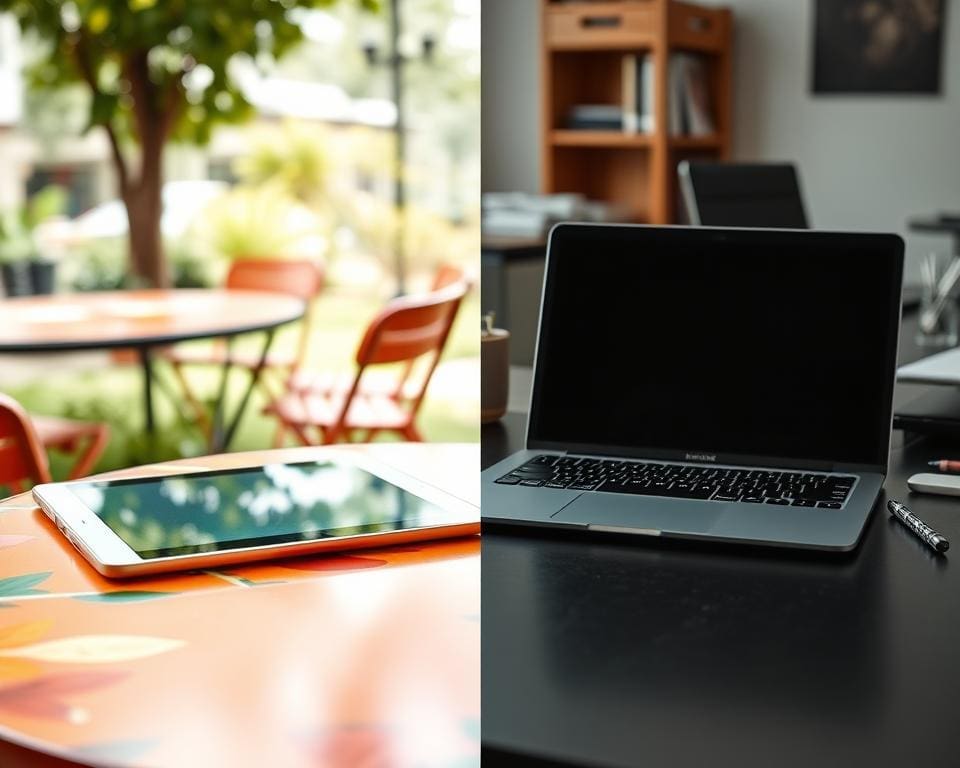In the ever-evolving digital landscape, both tablets and laptops have carved out significant roles, catering to an array of user needs. As we delve into the tablets vs. laptops debate, you may find yourself pondering which is right for you? This tablet vs laptop comparison is essential for anyone navigating the complexities of modern technology, whether for work, travel, entertainment, or education. Both devices bring unique strengths to the table, inviting you to assess your individual requirements. Join us as we explore the defining aspects of each option, helping you make an informed decision when choosing between tablet and laptop.
Understanding the Key Differences Between Tablets and Laptops
Choosing between a tablet and a laptop involves an understanding of several key differences that can significantly impact your user experience. Insights into portability considerations, operating systems, and input methods will guide you towards making an informed decision tailored to your needs.
Portability and Weight Considerations
Portability is a crucial factor in any tablet comparison or laptop comparison. Generally, tablets are designed to be lightweight and easy to carry, which makes them ideal for individuals constantly on the move. With their sleek profiles, tablets can slip into bags with ease, providing convenience without compromising functionality. In contrast, laptops, though typically more powerful, carry additional weight; this could be a disadvantage for users prioritising portability.
Operating Systems: A Comparative Review
The choice of operating system plays a significant role in determining the usefulness of each device. Tablets often run on iOS or Android systems, which are well-optimised for touch interaction and mobile applications. Laptops, on the other hand, predominantly utilise Windows or macOS, platforms that offer extensive software capabilities and compatibility. This distinction affects not only the types of applications available but also the overall usability, showcasing a critical difference in any tablet comparison against laptops.
Input Methods and User Experience
Another element to consider is the input methods of each device. Tablets primarily rely on touchscreen technology, making them intuitive for tasks such as browsing, gaming, or reading. They are often equipped with digital pens capable of navigating more precise tasks, appealing to creative users. Laptops provide a more traditional experience with a keyboard and mouse, enhancing productivity, especially for writing or data entry. This variation in input methods directly influences user experience and should not be overlooked during your evaluation.

Tablets vs. Laptops: Which is Right for You?
Determining the best device between tablets and laptops largely hinges on understanding your unique requirements. By identifying your primary use cases, you can tailor your choice to your specific activities—be it browsing the web, creating content, or indulging in gaming. Each category of tasks demands different capabilities, guiding you towards the more suitable option.
Identifying Your Primary Use Cases
Your primary use cases significantly shape the decision-making process. If you primarily engage in light browsing or watching videos, a tablet may serve you perfectly with its sleek design and portability. In contrast, for intensive tasks like graphic design or programming, a laptop equipped with robust laptop specifications is more likely to meet your needs. It’s essential to match the device with your daily habits and activities.
Assessing Performance Needs
When assessing performance needs, consider the processing power, RAM, and graphics capabilities necessary for your desired tasks. Tablets, while advanced, may not always match the performance of high-end laptops, especially when handling demanding applications. Therefore, evaluating what your activities entail will ensure you select a device that excels under your specific conditions.
Battery Life: What to Expect from Each Device
Lastly, battery life comparison cannot be overlooked in your decision. Tablets often excel in battery longevity, thanks to their smaller screens and energy-efficient hardware, whereas laptops, with their high-performance components, may drain faster. Understanding these differences in battery life will empower you to pick a device that aligns with your expectations and usage patterns.








